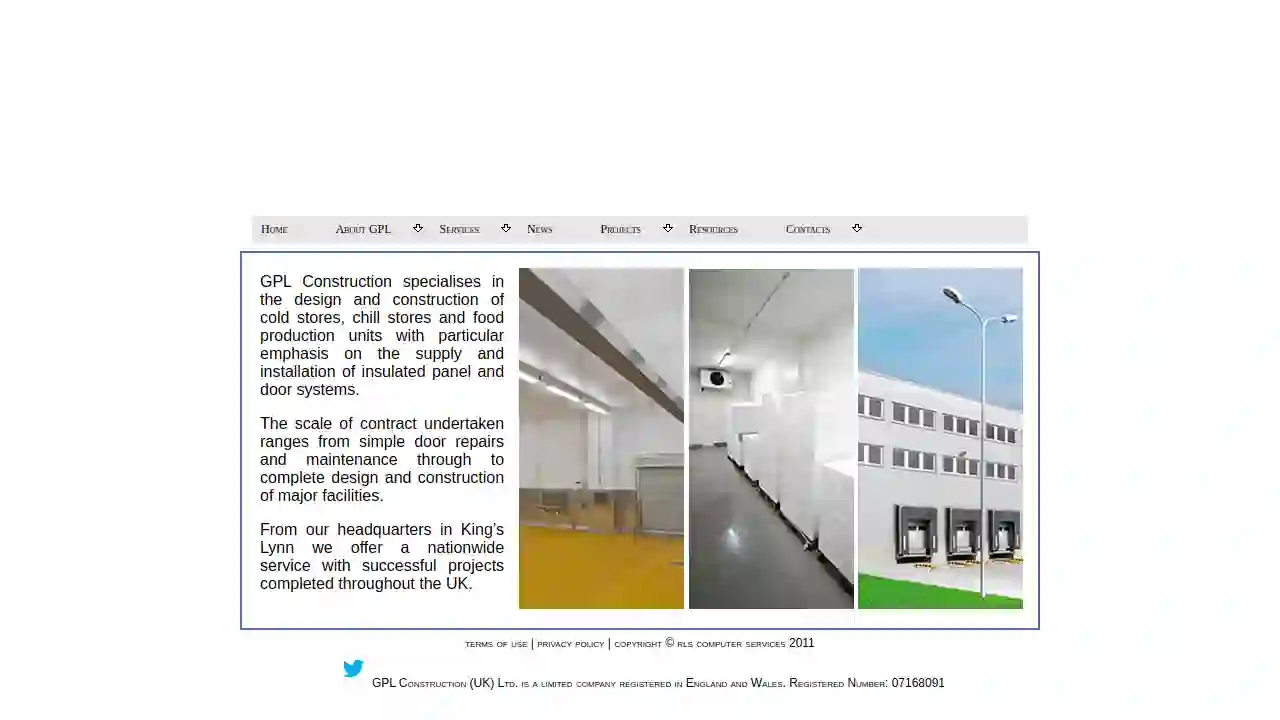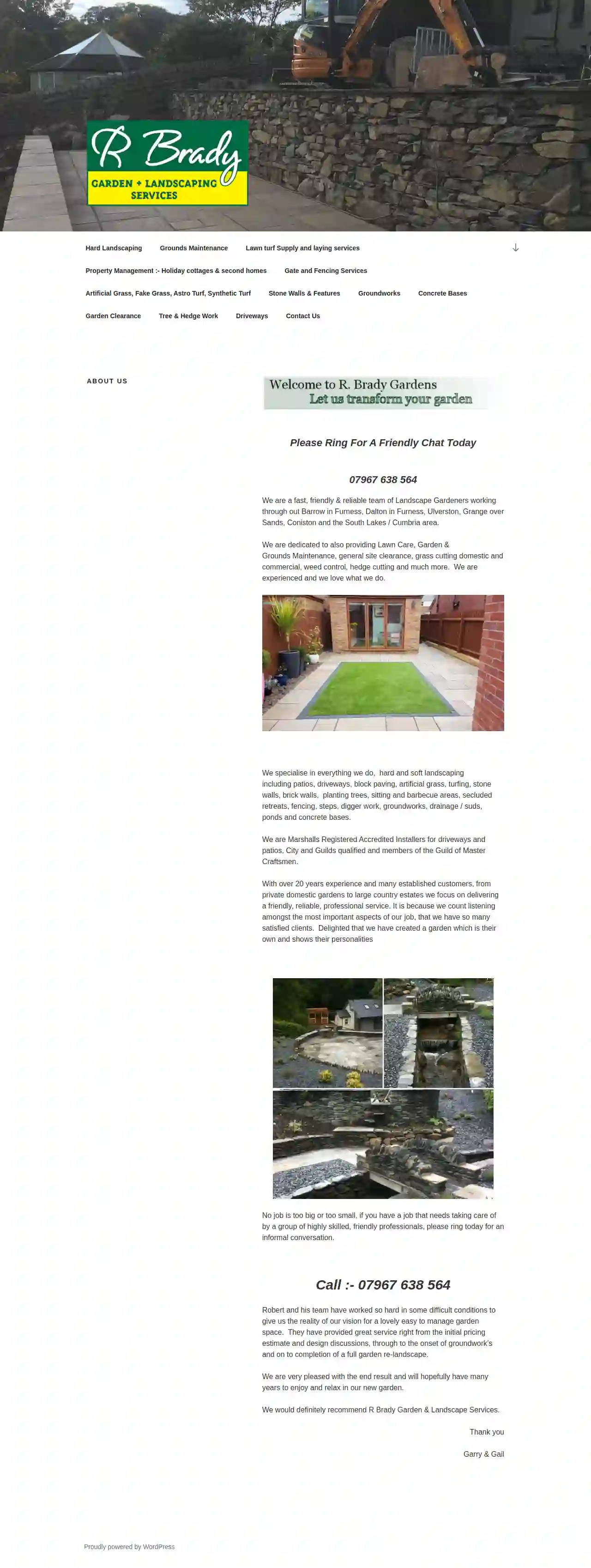Excavation Contractors Warboys
Find top Land Excavation in Warboys
Get 3 FREE Trenching Services quotes for your project today! Compare profiles, reviews, accreditations, portfolio, etc... and choose the best deal.

Jim's Diggers Camden
528 reviewsEly, GBAbout Jim's Jim's Group is a leading provider of home and business services in Australia and New Zealand. We have over 5500 franchisees across more than 50 divisions, offering a wide range of services to meet your needs. Our Mission Our mission is to provide our customers with high-quality, reliable services at a fair price. We are committed to providing our franchisees with the support and resources they need to succeed. Our Values We are committed to providing our customers with the highest quality service. We are also committed to providing our franchisees with the support and resources they need to succeed. Our History Jim's Group was founded in 1982 by Jim Penman. Jim started the business with a single van and a dream to provide high-quality, reliable services to his local community. Today, Jim's Group is one of the largest and most respected home and business service providers in Australia and New Zealand.
- Services
- Why Us?
- Gallery
Get Quote
G P L Construction (UK) Ltd
51 reviews18 Hodgson Way, Hardwick Narrows, Kings Lynn, Norfolk, King's Lynn, PE30 4WR, GBGPL Construction: Your Trusted Partner for Cold Storage Solutions GPL Construction (UK) Ltd is a family-run business with over 22 years of experience in the design and construction of cold stores, chill stores, and food production units. We are firmly established as one of the UK's leading performers in our market, offering a nationwide service with a commitment to delivering quality projects on time, within budget, and with minimal disruption to our clients' existing operations. Our team of experienced, multi-skilled operatives share a common vision and commitment to delivering the highest standards. We pride ourselves on our exceptional customer service, reliability, and quality of work, ensuring that each project receives the same high level of attention, whether it's a simple repair or a large-scale design and build project. From our headquarters in King's Lynn, Norfolk, we have successfully completed projects throughout the UK, ranging from simple door repairs and maintenance to the complete design and construction of major facilities. We specialize in the supply and installation of insulated panel and door systems, and we are well-placed to select the best materials for individual contracts without being tied to a specific product range. Our commitment to continuous improvement is reflected in our regular review of health and safety policies and our ongoing training programs. We are an approved contractor under the SafeContractor Scheme, which assesses the health and safety competency of suppliers and their service providers. This accreditation is recognized by many large organizations as their primary means of selecting contractors. We are a progressive company and welcome the opportunity to talk to people who can offer GPL their wealth of experience, are well qualified, and pride themselves on having good standards of work.
- Services
- Why Us?
- Accreditations
- Our Team
- Gallery
Get Quote
Sussex Land Works
52 reviews24, The Croft, Cocking, West Sussex, GU29 0HQ, GBWest Sussex Groundwork Contractor - Excavation, Site Clearance, Concreting & More Sussex Land Works is a West Sussex groundwork contractor. Based close to Chichester and Midhurst we have more than 25 years of experience in providing groundwork services and take pride in our reputation for quality and reliability at a competitive price. Much of our business comes from word of mouth recommendation. We operate throughout West Sussex, Surrey and East Hampshire and specialise in all aspects of Groundwork, Excavations and Concreting, including Landscaping. We also carry out Septic Tank and Waste Water Treatment Plant Installations in association with our sister company Sussex Water Treatments. Sussex LandWorks offers groundwork and excavation services to both commercial and domestic clients and carry out work to suit all specifications, across a wide range of projects, including drainage, landscaping and concreting projects to roads, sewers and service installations. We have a strong background in developing and supporting rural businesses, including agriculture, riding stables, country parks, fishing lakes etc as well as offer a wide range of domestic garden groundwork and hard landscaping services including laying of driveways, pathways and patios. Whatever your project we will ensure that all work undertaken is carried out with the same level of care and attention to detail and finished to the very highest specification. We operate our own fleet of plant and machinery and offer machine and operator hire to customers if required. Equipment includes excavators, trenching machinary, dumpers, small plant, etc. and all plant and equipment is maintained to high standards and our operators are trained to meet Health and Safety requirements.
- Services
- Why Us?
- Gallery
Get Quote
Causeway Coast and Glens Borough Council - Coleraine Office
2.97 reviewsCouncil Headquarters, Cloonavin, 66 Portstewart Road, Coleraine, Northern Ireland, BT52 1EY, GBWelcome to Causeway Coast and Glens Borough Council Causeway Coast and Glens Borough Council is a local authority in Northern Ireland, covering a beautiful and diverse area that includes the iconic Giant's Causeway, the dramatic coastline of the North Coast, and the rolling hills of the Glens of Antrim. We are committed to providing high-quality services to our residents and businesses, and to working in partnership with our communities to create a thriving and sustainable future for all. Our Mission Our mission is to deliver excellent services to our residents and businesses, to promote economic growth and prosperity, and to protect and enhance our environment. We are committed to working in partnership with our communities to create a thriving and sustainable future for all. Our Services We provide a wide range of services to our residents and businesses, including: Bins and recycling Births, deaths and marriages Health and built environment Community services Planning Leisure centres Caravan parks Tourist attractions Rural development Business events Business grants Compliments and complaints Our Team Our team is dedicated to providing excellent services to our residents and businesses. We are committed to working in partnership with our communities to create a thriving and sustainable future for all.
- Services
- Why Us?
- Gallery
Get Quote
Causeway Coast & Glens Borough Council
Council Headquarters, Cloonavin, 66 Portstewart Road, Coleraine, BT52 1EY, Northern Ireland, GBWelcome to Causeway Coast and Glens Borough Council Causeway Coast and Glens Borough Council is a local authority in Northern Ireland, covering a beautiful and diverse area that includes the iconic Giant's Causeway, the dramatic coastline of the North Coast, and the rolling hills of the Glens of Antrim. We are committed to providing high-quality services to our residents and businesses, and to working in partnership with our communities to create a thriving and sustainable future for all. Our Mission Our mission is to deliver excellent services to our residents and businesses, to promote economic growth and prosperity, and to protect and enhance our environment. We are committed to working in partnership with our communities to create a thriving and sustainable future for all. Our Services We provide a wide range of services to our residents and businesses, including: Bins and recycling Births, deaths and marriages Health and built environment Community services Planning Leisure centres Caravan parks Tourist attractions Rural development Business events Business grants Compliments and complaints Our Team Our team is dedicated to providing excellent services to our residents and businesses. We are committed to working in partnership with our communities to create a thriving and sustainable future for all.
- Services
- Why Us?
- Gallery
Get Quote
Camden Mews Construction Co.
Ely, GBCamden Mews Construction Co. is a full service building, renovation and construction company with a particular passion for contemporary, innovative and sustainable builds. We specialise in bringing together a talented team of construction professionals tailored to your project, timeline and goals to achieve a flawless, quality finish. We manage and execute full scale projects from start to finish including extensions, renovations, outdoor kitchens and more, in the Bath and Somerset area. We choose the people we work with carefully. From architects and engineers to designers and building control experts, we make sure that we choose the best team for your build. Our job is to work closely with this team to ensure that your whole project is completed smoothly, timely and to the highest standard. For more information or an informal chat, get in touch, we’d love to hear from you.
- Services
- Why Us?
- Gallery
Get Quote
Rekare Excavating & Trucking Inc.
56 reviewsCambridge, GBWelcome to ReKare Excavating and Trucking, in Cambridge, Ontario. A locally owned family business, fully licensed and insured with over 40 years’ experience. We believe in creating relationships that last a lifetime where partnerships are based on mutual trust and respect where every customer is satisfied. ReKare Excavating and Trucking offers excavating, trucking, material supply, landscaping, and more. Dependable, professional services for any size job. Browse our website to learn more about our services and give us a call at 519-651-9305 today!
- Services
- Why Us?
- Gallery
Get Quote
West Sussex Archaeology Ltd
Ely, GBWest Sussex Archaeology Ltd West Sussex Archaeology Ltd is a leading provider of archaeological services in West Sussex and the surrounding areas. We have a team of experienced archaeologists who are passionate about their work and committed to providing our clients with the highest quality service. We offer a wide range of services, including: Archaeological surveys Excavations Post-excavation analysis Heritage assessments Training and education We are committed to providing our clients with a professional and ethical service. We are also committed to working with the local community and promoting public understanding of archaeology.
- Services
- Why Us?
- Gallery
Get Quote
Brady garden & landscape services ltd
Ely, GBAbout Us We are a fast, friendly & reliable team of Landscape Gardeners working through out Barrow in Furness, Dalton in Furness, Ulverston, Grange over Sands, Coniston and the South Lakes / Cumbria area. We are dedicated to also providing Lawn Care, Garden & Grounds Maintenance, general site clearance, grass cutting domestic and commercial, weed control, hedge cutting and much more. We are experienced and we love what we do. We specialise in everything we do, hard and soft landscaping including patios, driveways, block paving, artificial grass, turfing, stone walls, brick walls, planting trees, sitting and barbecue areas, secluded retreats, fencing, steps, digger work, groundworks, drainage / suds, ponds and concrete bases. We are Marshalls Registered Accredited Installers for driveways and patios, City and Guilds qualified and members of the Guild of Master Craftsmen. With over 20 years experience and many established customers, from private domestic gardens to large country estates we focus on delivering a friendly, reliable, professional service. It is because we count listening amongst the most important aspects of our job, that we have so many satisfied clients. Delighted that we have created a garden which is their own and shows their personalities No job is too big or too small, if you have a job that needs taking care of by a group of highly skilled, friendly professionals, please ring today for an informal conversation.
- Services
- Why Us?
- Accreditations
- Testimonials
- Gallery
Get Quote
Dougherty Excavating
Perkasie, Pennsylvania, 18944, GBAbout Dougherty Excavating At Dougherty Excavating, we do all types of grading and excavation for residential and commercial construction projects. Basements, garage and pole barn building pads, septic system installation, grading to repair drainage and erosion issues that can lead to a wet basement, land clearing & driveways. For the equestrian, our Arena Pro Services team offers evaluation of existing arenas that need grading repair or construction of new riding arenas. As a local Bucks County General Contractor with over 40 years experience in grading and excavation, our team has the knowledge and skills to evaluate each project and deliver superior results.
- Services
- Why Us?
- Gallery
Get Quote
Over 13,059+ Excavation Contractors on our directory
Our excavation pros operate in Warboys and beyond!
ExcavationHQ has curated and vetted the Best Excavation Companies in Warboys. Find the most trustworthy business today.
Frequently Asked Questions About Excavation Contractors
- Experience: Choose contractors with a proven track record and years of experience in excavation projects similar to yours.
- Licensing and Insurance: Verify that they are properly licensed to operate in your area and carry adequate insurance to protect you from liability in case of accidents or damage.
- Equipment and Resources: Ensure they have the necessary equipment and resources to handle your project efficiently and safely.
- Positive Reviews and References: Check online reviews and testimonials from previous customers. Request references and contact them to inquire about their experience with the contractor.
- Professionalism: Opt for a company that communicates clearly, provides detailed and transparent estimates, and has a responsive and courteous team.
- Utility Locates: Contact your utility companies to mark the locations of underground lines before excavation begins. This is usually a free service.
- Hand Digging: Excavate carefully by hand near marked utility lines to avoid damage.
- Potholing: Digging small test holes to expose and verify utility depths and locations.
- Safe Distances: Maintaining a safe distance between excavation equipment and marked utility lines.
- Vacuum Excavation: Using vacuum excavation techniques to expose utilities without digging, reducing the risk of damage.
- Clearly Define the Scope: Outline the project's goals, including the excavation area, depth, grade, and intended use.
- Obtain Necessary Permits: Research and acquire any required permits from your local authorities.
- Mark Utility Lines: Contact your utility companies to locate and mark underground utilities to prevent damage.
- Communicate with Neighbors: Inform your neighbors about the project's timeline and potential noise or disruptions.
- Prepare the Site: Clear any obstacles, such as vegetation, furniture, or structures, from the excavation area.
- Discuss Safety Protocols: Review safety procedures with the contractor to ensure a safe work environment.
How do I find a good excavation contractor?
What is the difference between topsoil and subsoil?
Topsoil: The uppermost layer, typically rich in organic matter, nutrients, and microorganisms. It's essential for plant growth and is often darker in color.
Subsoil: The layer beneath the topsoil, containing less organic matter and generally denser. It provides support for roots but is less fertile than topsoil.
During excavation, topsoil is often removed and preserved separately for later use in landscaping, while subsoil is typically used for backfilling or other less demanding applications.
How do you protect utilities during excavation?
What should I do before excavation starts?
How do I find a good excavation contractor?
- Experience: Choose contractors with a proven track record and years of experience in excavation projects similar to yours.
- Licensing and Insurance: Verify that they are properly licensed to operate in your area and carry adequate insurance to protect you from liability in case of accidents or damage.
- Equipment and Resources: Ensure they have the necessary equipment and resources to handle your project efficiently and safely.
- Positive Reviews and References: Check online reviews and testimonials from previous customers. Request references and contact them to inquire about their experience with the contractor.
- Professionalism: Opt for a company that communicates clearly, provides detailed and transparent estimates, and has a responsive and courteous team.
What is the difference between topsoil and subsoil?
Topsoil: The uppermost layer, typically rich in organic matter, nutrients, and microorganisms. It's essential for plant growth and is often darker in color.
Subsoil: The layer beneath the topsoil, containing less organic matter and generally denser. It provides support for roots but is less fertile than topsoil.
During excavation, topsoil is often removed and preserved separately for later use in landscaping, while subsoil is typically used for backfilling or other less demanding applications.
How do you protect utilities during excavation?
- Utility Locates: Contact your utility companies to mark the locations of underground lines before excavation begins. This is usually a free service.
- Hand Digging: Excavate carefully by hand near marked utility lines to avoid damage.
- Potholing: Digging small test holes to expose and verify utility depths and locations.
- Safe Distances: Maintaining a safe distance between excavation equipment and marked utility lines.
- Vacuum Excavation: Using vacuum excavation techniques to expose utilities without digging, reducing the risk of damage.
What should I do before excavation starts?
- Clearly Define the Scope: Outline the project's goals, including the excavation area, depth, grade, and intended use.
- Obtain Necessary Permits: Research and acquire any required permits from your local authorities.
- Mark Utility Lines: Contact your utility companies to locate and mark underground utilities to prevent damage.
- Communicate with Neighbors: Inform your neighbors about the project's timeline and potential noise or disruptions.
- Prepare the Site: Clear any obstacles, such as vegetation, furniture, or structures, from the excavation area.
- Discuss Safety Protocols: Review safety procedures with the contractor to ensure a safe work environment.